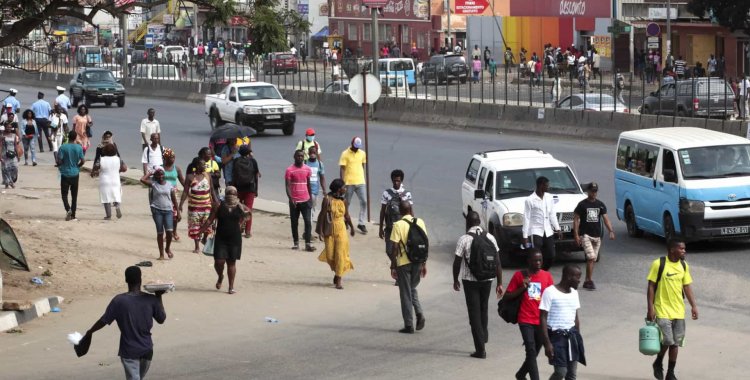The concern is expressed in the statement read this Monday at the end of the I Plenary Assembly – 2022, held in the province of Benguela.
In the document, the bishops express themselves uncomfortable with the tendency to extreme positions, defending the need for a "serious and patriotic dialogue between the leaderships to help calm tempers".
"Given the signs of violence in recent times, the process of peace and national reconciliation must be a major priority for our country. A non-partisan and impartial media, committed to ethical and moral values, would greatly contribute to this desideratum. Likewise, it is called for the responsible use of social networks by citizens", recommend the bishops.
The spokesman for CEAST and Bishop of Cabinda, Belmiro Tchissengueti, said that the main observer of this year's general elections, "is each one of the citizens, trying to work for the smoothness of the process".
Tchissengueti said that the Catholic Church has carried out electoral observation within the framework of what the law allows and "it has not been easy, in some cases, to obtain access to such observation", however, there was participation in the general elections of 2012, 2017, the same owing occur this year.
"The main electoral observer is each one of the citizens, wherever each one is, he must be an electoral observer, trying to work for the smoothness of the process. The church can make its contribution, but the essential part of the process is the citizens who must be the first," he said.
This participation, he stressed, should start by avoiding absenteeism, preparing electoral cards and registering them in order to know the exact place of their vote.
The bishop considered the electoral legislation "very confusing in this aspect", defending that it would be better to actually "count the table, in the municipality, in the province and then make the national total".
In the communiqué, analyzing the situation in the country, the bishops found that there is a marked degree of ignorance about the document to be used on election day, which requires, on the part of the authorities, greater dissemination, placing the inherent services within the reach of all. the citizens.
In the pastoral message entitled "For a Nation to be built and a State to be consolidated", read by the president of CEAST, Manuel Imbamba, the bishops underline in this election year "some worrying signs of violence, vandalism, intrigue, intolerance and disputes of various kinds ".
The bishops reiterate the orientation during the previous general elections, in 2017, that it is necessary to "take care that respect for the diversity of options, which is constructive of the democratic system, is not lacking, care must be taken so that no situation leads to any type of violence, whether verbal, physical or psychological" in the presentation of the various political programs.
"With respect for national reconciliation, one should avoid unnecessarily remembering sad episodes in history, which are not even part of the experience of many voters. It would be foolish to open wounds that are healing", they emphasize.
The Catholic bishops warn that "the fanaticism displayed by any militant is counterproductive and dangerous", taking into account that this "can show a deficient capacity for reflection and self-analysis".
"Which will not convince, but will alienate voters, whose number of enlightened people, fortunately, continues to grow among us", they emphasize.
For CEAST, "it is an obligation of honesty, that in the electoral campaign, political parties move from vague promises to programs, which voters must understand and analyze very carefully".
To the media, the bishops refer to the fundamental role in the dissemination of moral and civic values, referring to healthy coexistence in society and love for the country, criticizing the excessively unilateral and biased behavior, especially of state bodies.
"For their credibility, they must play their extremely important role throughout the electoral process, with rigor and impartiality, guaranteeing access to information about the different candidates and political programs, reporting truthfully and impartially", they advocate.
Another appeal goes to the guarantors of public order, noting that Angolan law considers that certain members of professional groups such as magistrates, police officers and the military must be non-partisan, which does not mean that they cannot vote and have their party preferences.
"But they must refrain from demonstrating and campaigning for parties, pressuring people to vote for A or B. It is our hope that such bodies promote and ensure transparent justice and guarantee the psychological, physical and social security of citizens and institutions ", they stress.







